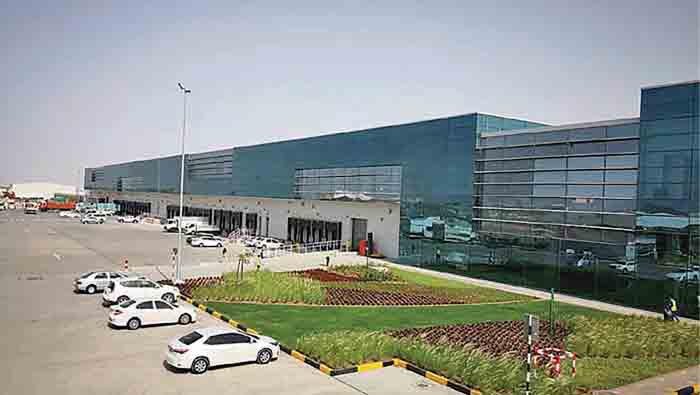
Muscat: Oman Aviation Group’s (OAG) ‘National Air Cargo Strategy’ aims to increase cargo tonnage to 780,000 tonnes by 2030.
Muscat International Airport’s cargo tonnage grew by 160,000 tonnes in 2016 and 203,000 in 2017.
In 2018, the airport achieved 215,000 tonnes, according to the Oman Aviation Group.
In a statement, Oman Aviation Group said: “We strive to make Oman a hub for logistics operations, which is why we have launched our National Air Cargo Strategy, connecting us with key businesses and linking Oman’s air cargo market with the rest of the world.”
The new Muscat International Air Cargo Terminal cargo facility features a 22,780 square-metre, air conditioned warehouses with the capacity to handle 350,000 tonnes of cargo per annum – a substantially larger capacity than the previous cargo facility.
The new facility includes 367 pallet or 734 container configurations for Unit Load Device (ULD) storage over three levels, as well as 2,208 Skidded Pallet Positions – all serviced by Elevating Transfer Vehicles (ETV).
There are dedicated bays that can accommodate three ‘Code F Freighter’ Aircraft, along with twenty-five 40-foot truck parking bays (or fifty 20-foot truck bays), as well as 400 car parking bays and 34 truck docks.
The facility also features Bulk Cold Rooms (consisting of 3 chillers, 2 freezers, and 1 ambient room), and ULD Cold Rooms with 28 airline pallet positions in the chiller rooms, and 8 airline pallet positions in the freezer rooms.
In addition to this, there are Scissor Lift & ULD Bypass Lane facilities, as well as X-ray machines for joining and trans-shipment cargo screening.
The facility also includes a 2,500 square-metre Live Animal Centre, a 228 square-metre Dangerous Goods Room (DGR) with the capacity to handle 90 skids and loose cartons, and a Vulnerable Goods Cage with 264 pallet positions.
The Diplomatic Room, Human Remains Room, Radioactive Room and Strong Room make up the remainder of the facility’s handling units.
The entire facility is supported by 24-hour services for import and export cargo, and its automated cargo system for documentation and warehousing, export cargo acceptance, and imports cargo delivery.